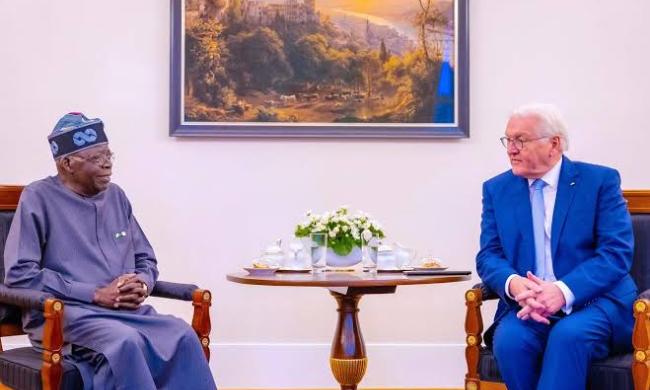President Tinubu Assures German President: Nigeria Has Tax Reforms Friendly to German Businesses
In a bid to strengthen economic ties between Nigeria and Germany, President Bola Tinubu has assured German President Frank-Walter Steinmeier that Nigeria has implemented tax reforms that are friendly to German businesses. This assurance was given during Steinmeier’s visit to Nigeria, where the two leaders discussed ways to deepen ties between their countries.
Background of the Meeting
The meeting between Tinubu and Steinmeier was a significant step in strengthening the economic relationship between Nigeria and Germany. The two leaders discussed various issues, including trade, investment, and economic development.
Tinubu’s Assurance on Tax Reforms
Tinubu highlighted the ongoing reforms aimed at fostering a business-friendly environment and attracting foreign investment. These reforms include import duty waivers for machinery, decentralization of power generation, and active foreign exchange reforms. The President also emphasized the removal of bureaucratic bottlenecks in establishing businesses, stating that Nigeria has an “open-door policy”.
“We have implemented tax reforms that are friendly to German businesses,” Tinubu said. “We believe that these reforms will encourage German businesses to invest in Nigeria and take advantage of the numerous opportunities available in our country.”
Details of the Tax Reforms
The tax reforms transmitted by Tinubu to the National Assembly include the Nigeria Tax Bill 2024, which proposes to raise the Value-Added Tax (VAT) from 7.5% to 10% by 2025. The bill also outlines tax rates to be imposed on companies, with small firms taxed at 0%, and all other companies facing a tax rate of 27.5% in 2025.
Other key provisions of the tax reforms include:
– Increment in VAT: Raise VAT from 7.5% to 10% by 2025, with further increases to 12.5% from 2026 to 2029, and 15% from 2030 onwards.
– Company Tax: Impose a tax rate of 27.5% on companies in 2025, reducing to 25% from 2026.
– Development Levy: Impose a development levy of 4% on the assessable profits of companies, excluding small and non-resident companies.
Reaction from the German President
Steinmeier welcomed Tinubu’s assurance on tax reforms, stating that Germany is committed to strengthening economic ties with Nigeria.
“We appreciate the efforts of the Nigerian government to create a business-friendly environment,” Steinmeier said. “We believe that the tax reforms implemented by Nigeria will encourage German businesses to invest in the country.”
Implications of the Tax Reforms
The tax reforms implemented by Nigeria are expected to have a significant impact on the country’s economy. The reforms are expected to attract foreign investment, create jobs, and stimulate economic growth.
However, some experts have expressed concerns about the potential impact of the tax reforms on small businesses and low-income individuals. They argue that the increase in VAT could lead to higher prices for goods and services, which could negatively impact small businesses and low-income individuals.
Conclusion
President Tinubu’s assurance to German President Steinmeier that Nigeria has implemented tax reforms friendly to German businesses is a significant step in strengthening economic ties between the two countries. The tax reforms implemented by Nigeria are expected to attract foreign investment, create jobs, and stimulate economic growth. However, it is essential to monitor the potential impact of the tax reforms on small businesses and low-income individuals.





